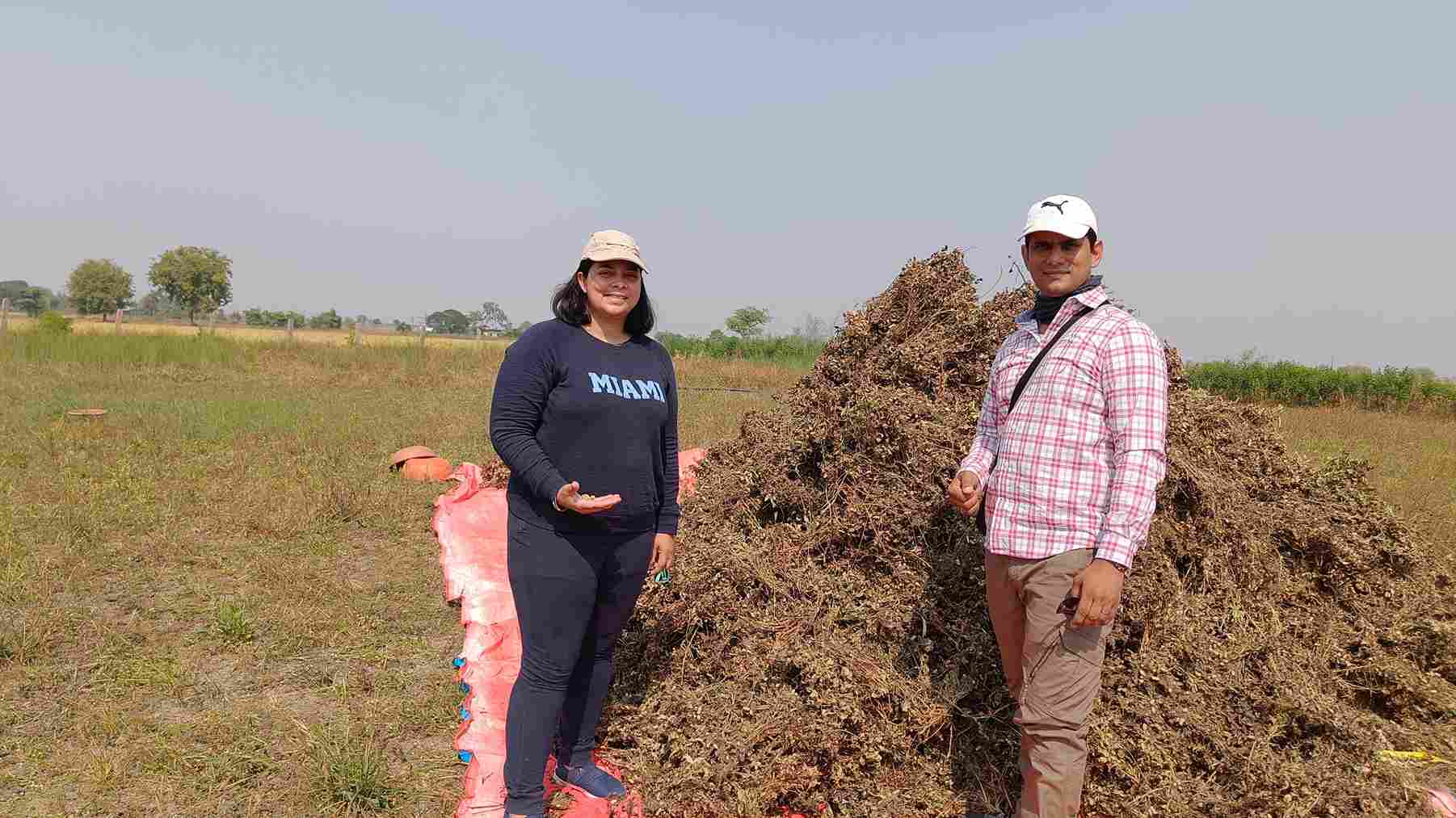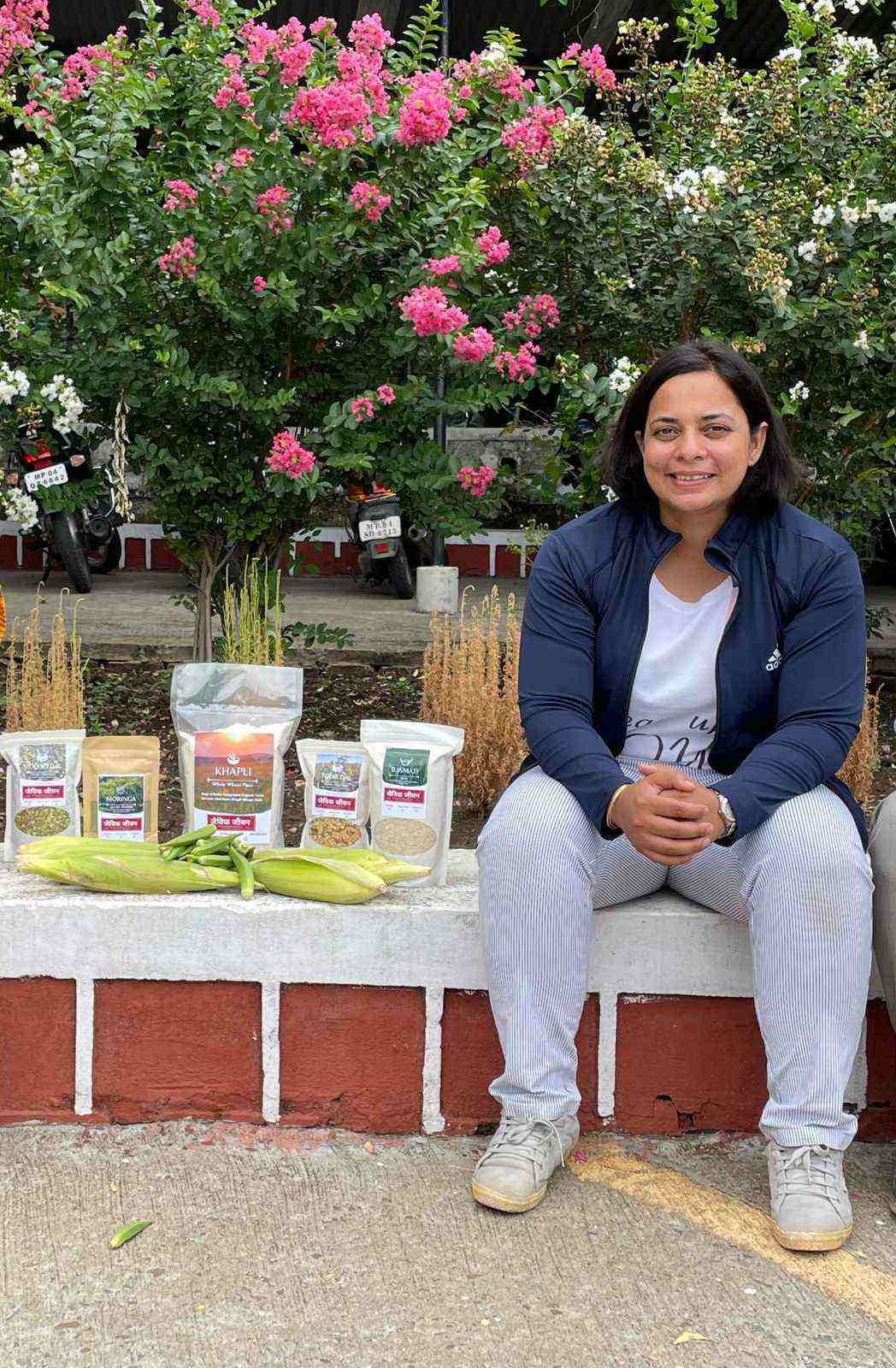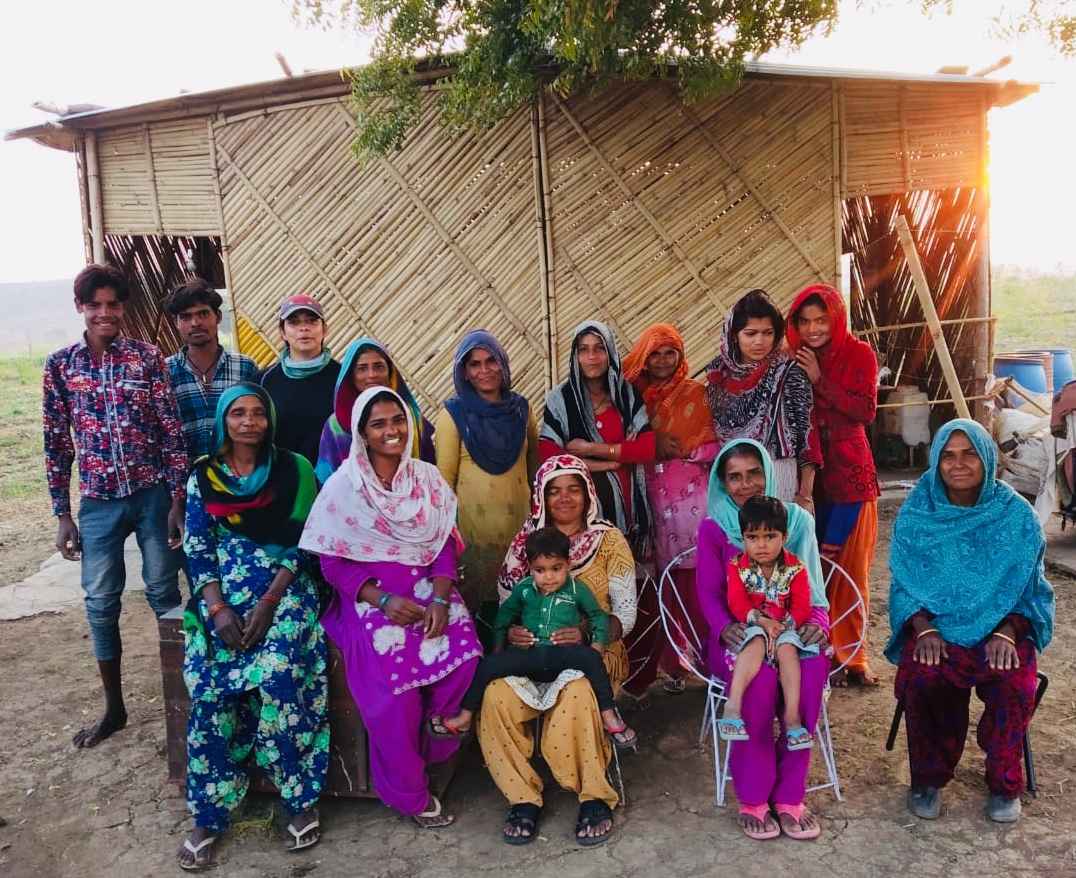It was one day in 2017 while driving to their workplace in Delhi that a couple from Bhopal was left startled.
Sudhanshu Sharma and his wife Susmita Roy were working in the national capital. He was in the strategy and marketing sector, while she was in public health.
What astonished them was a high-rising “mountain” that they would often pass on their way to work. But on this fateful day, they realised it wasn’t a mountain, but a massive mound of garbage.
“It was shocking,” Sudhanshu recounts to The Better India. The couple says this ghastly revelation only added to their growing concerns about the city and its pollution standards.
“The dust, pollution, and air quality in the national capital would often cause us to wonder how people were okay with it,” says Sudhanshu.
Despite the “good life” they were living, there was a looming concern on his mind. Delhi may be an advanced city in the world, but if one cannot breathe clean air, what is the point?
That very year, the couple made a conscious decision to be a part of the solution. The way forward as they saw it, would be a series of slow and decimal changes, but steps in the right direction nonetheless.

While they were ideating on what they could do to improve the quality of their lives, they were reminded of a family land that was lying vacant in Bhopal. So they decided to cultivate it with organic farming methods, which would also give them a chance to get in touch with their roots.
Creating a farming venture right from the roots
Sudhanshu says that he never expected his life to take this course. “I studied finance at the prestigious LEEDS Business School and had plans to go into the investment sector. However, the recession hit, and I returned to India in 2008, where I continued working in the corporate line,” he recounts.
“I was always looking for a niche that could lead to a win-win situation,” says Sudhanshu, thinking back to the initial days of starting the farm. He had to do intensive research to get things right and work at the grassroots levels to understand the basics of farming.
After months of dedication, in 2018, the couple was ready to start farming on their 14-acre land which is 65 km from Bhopal and had laid barren for years. Their first choice of crops was moringa and aloe vera, following the success of which, they ventured into paddy cultivation.
“The crops sold well,” says Sudhanshu. And in the coming years, the couple was looking at a land booming with vegetables such as lauki (bottle gourd), bhindi (lady’s finger), pumpkin, and spices such as coriander, methi (fenugreek), and more. They employed organic techniques to boost production, including using gau mutra (cow urine) as a fertiliser.
“As part of our integrated farming model, we ensured that everything used to fertilise the land comes from the land itself. We also adopted cows that were abandoned on the streets of Bhopal and currently have 14 of them. We used the cow dung to fertilise and nourish the land,” says Sudhanshu.

Instead of the traditional technique of tilling the land, which leads to the release of carbon and other greenhouse gases, the couple used the vegetable crop to prepare the ground for cultivation.
Jaivik Jeevan: Giving people their money’s worth
However, the businessman turned farmer says he soon noticed a gap — “When we’d go to the farmers’ markets, people would express a desire to consume vegetables and fruits produced locally,” he says.
This got the couple thinking about how they could channel their resources into building a venture that would let India taste the sweetness of their produce. And in January 2020, Jaivik Jeevan’s first store was set up in Bhopal, and was touted as the business arm of the organic farm.
The idea behind building a D2C (direct-to-consumer) brand, says Sudhanshu, was for people to have access to good quality produce. He adds that in the years that followed, their earnings increased.
“We started following the principle of multiple cropping, wherein we reserve four acres for vegetables, another few acres for oilseeds, pulses, etc,” he says, adding that the processing centre on the land is where oils, flours, etc, are prepared from the millet and the waste is used for vermicomposting.
“It is a zero wastage farm concept,” he shares. “But the journey from being corporate professionals to spearheading organic farming has been an uphill one with its own share of lows.” Recounting their initial years of learning, the couple says it couldn’t have been more eventful.

“Some days we would see the jowar (sorghum) and bajra (pearl millet) being eaten by the birds, and while it was disheartening, we would always say ‘Let them enjoy’. Corporate life often makes one forget that there are other beings on the planet who have tremendous intelligence,” says Sudhanshu.
Through this journey of learning, the couple made sure they never lost focus of their goal, which was to stay true to their customers while ensuring farmers a chance to earn a better price.
‘We never shied away from going to the mandis.’
Susmita says that they believed they would grow more if they incorporated feedback from their customers and engaged with the farmers on a regular basis. So they did all the groundwork themselves.
“We would go and stand with our farmers and did not shy away from taking produce to the mandis ourselves sometimes,” says Susmita. “People in cities often do not know where their food is coming from, nor see their farmer. But we wanted to change this.”
“Our customers are aware of what goes into the production process, how the sowing of the groundnuts is done, and other such processes, as we ensure transparency,” she adds.
Currently, there are 12 farmers associated with Jaivik Jeevan. The sentiment shared among them is one of gratitude toward the couple, as their quality of life has greatly improved. They say there is no need to migrate to the cities when things are going so well in the village.
The farmers along with managing the Jaivik Jeevan farm, also tend to their own farms, as Sudhanshu and Susmita do not compel them to leave their independent farms. “We do farm pickups for produce grown on the farmers’ lands and everything produced is bought. We don’t believe in sorting and grading produce, and being picky,” says Sudhanshu.
Chaudhary Bhoopendra Singh, one of the farmers, who has been associated with Jaivik Jeevan since 2018, says, “After getting in touch with Sudhanshu and Susmita I have started getting a good rate for my crops. I can also reach the right customers. It has not only helped me as a farmer but also as a customer. I urge all farmers in Madhya Pradesh to join hands with this platform and resort to organic farming, as I think it is great for a farmers’ well-being.”

Jaivik Jeevan products are shipped to more than 20 cities, including Mumbai, Pune, Hyderabad, and Chennai. The product range includes pickles, chutneys, oils, spices, ghee, honey, fruits, and vegetables. Sudhanshu says they have received 20,000 orders over the last two and a half years.
“But,” as Susmita emphasises, “I wouldn’t call it a ‘rags to riches’ story. The sight of the mound of garbage that we spotted all those years back gave us an insight into how callous we have become about the planet.”

She adds that starting an organic farm with Sudhanshu may seem like a small step, but it is one in the right direction.
“Patience, not giving up and a leap of faith helped us transition from the corporate world to this green one.”
You can order products from Jaivik Jeevan here.
Edited by Pranita Bhat
No comments:
Post a Comment